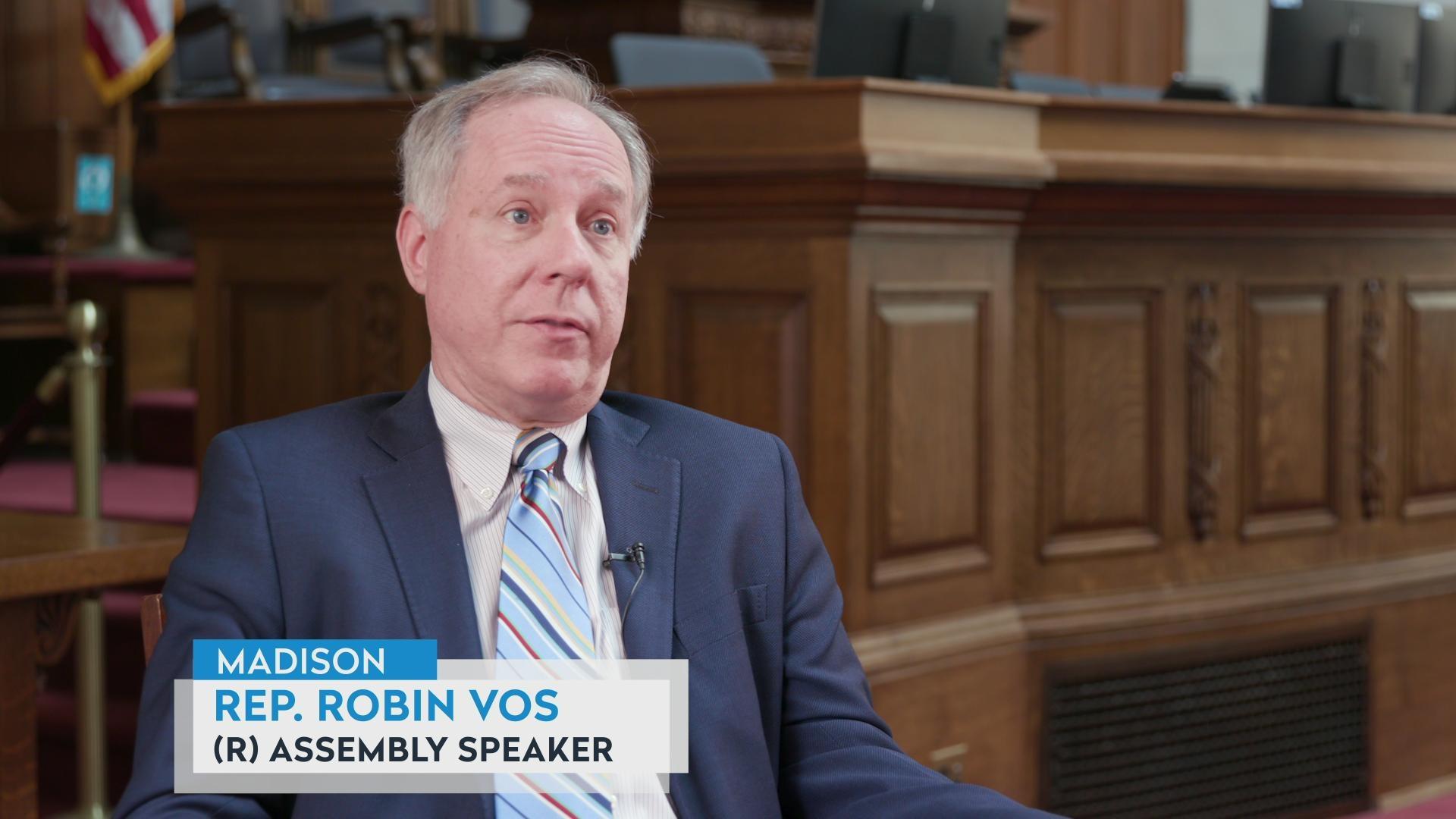Frederica Freyberg:
The alder who called this a bad deal nonetheless voted for the 2% sales tax. Milwaukee Alderman Russell Stamper joins us now. Thanks very much for being here.
Russell Stamper, II:
Of course. Thanks for having me.
Frederica Freyberg:
Why did you call this negotiated shared revenue deal a bad deal for Milwaukee?
Russell Stamper, II:
Yes. Well, mainly because of the provisions that comes along with it. There’s no — make no mistake about it, the city of Milwaukee does need money. We have a huge financial gap of approximately about $183 million and projected to be upwards of $190 million by 2025. But what we were expecting or what we would have appreciated was a clean bill. A bill that just allows us to raise the sales tax to 2% and also receive our fair share of shared revenue. However, I don’t know what happened during the negotiations. I don’t know what those guys at the state level are thinking, but they provided or added all these provisions that are going to hurt Milwaukee, particularly the Black and brown community.
Frederica Freyberg:
So ahead of the vote to that, you compared Wisconsin Act 12, the new shared revenue law, as it affects Milwaukee to Jim Crow laws and red lining.
Russell Stamper, II:
Yes.
Frederica Freyberg:
And further called legislators who wrote and supported the bill Milwaukee’s enemies. Why do you think that?
Russell Stamper, II:
Well, it’s clear that they are not trying to help us. They haven’t been for the last three decades. And when they put this bill together, in order for us to receive the money that we need desperately, they took advantage of that and added provisions that will hurt a city that is the worst, top three worst, in the country for African-Americans. So to me, that was a direct hit to not help us progress and also hurts our ability to govern and hurt our ability to help the people that are most in need. So just historically, laws and codes and different methods have been put in place to keep Black people down, to hurt Black people, to not let them progress. And with these provisions in place, when we were making significant progress with many different positions and programs to help the people that need it the most, which are African-Americans and brown people, they decided, hey, you guys can’t do that anymore. No more equity, opportunity, no more equal opportunity. Hey, you guys have to govern based on what we tell you. And here’s the money, here’s what the money has to be used for. So to me, that’s unfair. To me, that does not show a working relationship.
Frederica Freyberg:
You said that Milwaukee needs to take advantage of what you know you have to do. What do you have to do?
Russell Stamper, II:
Well, we have to come together as aldermen, as county supervisors, as executive branches and leadership, we have to come together and find different ways to support our community. It’s going to be a greater effort. We’re going to need people to come together, particularly Black people to unite and come together and work towards improving our community, our conditions more than we ever have. So we’ve done it in the past. We’ve been resilient in the past. That was what I was referring to and we’re going to have to work a little bit harder, put more effort into the community and get people more on board on what the state is trying to do to us so we can overcome and be successful as a city.
Frederica Freyberg:
What do you say to any of your constituents who say that this will hurt them financially?
Russell Stamper, II:
Yeah. So one of the things that we have in place that I will be fighting for, and this goes back to us working together and trying to find alternative ways to help the people, are — we want to put in stipends for low income and on people that are on fixed incomes. So we have something that we enacted in the past and we’re going to look forward to bringing that forward. I think it’s called a UB1
that a previous alderman at the council had put forth and we’re going to look forward to implementing that. It’s a certain amount of stipend or certain amount of families on an annual basis in the city of Milwaukee. But to the families, we’re going to have to provide more opportunities for them. We have to get them more engaged. Call on and hold the business community accountable. They all came and testified in favor of this 2%. Everyone that I spoke with, even the ones that are in favor in the business community, know about the poison pills and the provisions that were put in place. So everybody is in agreement that these policies will hurt our ability to govern and hurt our ability to help Black and brown people, but they also understand that we are in a financial situation where we seriously need some money. So that’s where I’m coming from and we will continue to help people that need it the most.
Frederica Freyberg:
All right. We leave it there, Alderman Russell Stamper. Thanks very much.
Russell Stamper, II:
I appreciate you.
Search Episodes
News Stories from PBS Wisconsin

Donate to sign up. Activate and sign in to Passport. It's that easy to help PBS Wisconsin serve your community through media that educates, inspires, and entertains.
Make your membership gift today
Only for new users: Activate Passport using your code or email address
Already a member?
Look up my account
Need some help? Go to FAQ or visit PBS Passport Help
Need help accessing PBS Wisconsin anywhere?

Online Access | Platform & Device Access | Cable or Satellite Access | Over-The-Air Access
Visit Access Guide
Need help accessing PBS Wisconsin anywhere?

Visit Our
Live TV Access Guide
Online AccessPlatform & Device Access
Cable or Satellite Access
Over-The-Air Access
Visit Access Guide
 Passport
Passport


















Follow Us